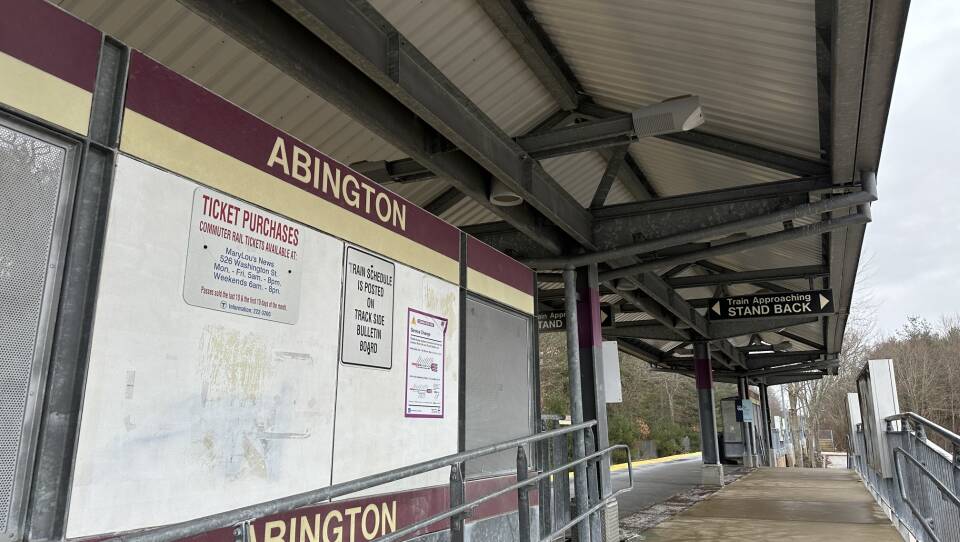A new CommonWealth Beacon/GBH News poll (toplines, crosstabs) captures the conflicted thinking of residents toward the state’s pursuit of more housing through the MBTA Communities Act.
The law requires 177 communities near MBTA facilities to rezone to accommodate more multi-family housing as a matter of right. In the statewide poll, which surveyed 1,002 Massachusetts residents, 50% of respondents viewed the law as good policy, while 20% said it is bad policy, and 30% either didn’t know or refused to answer.
But when asked if the state should force municipalities to comply with the law, just 31% said yes, while 41% said no, and 28% were either unsure or refused to answer. The poll was conducted online by the MassINC Polling Group between March 21 and March 29, and has a margin of error of 3.4 percentage points.
The poll seems to show a version of “NIMBY” thinking among residents, with most people supporting the broad goal of creating more housing, but a significant number of responders wary of having that housing forced on individual communities.
“I could imagine these two results in one poll just surfacing a little bit of that sort of cognitive dissonance,” said Luc Schuster, the executive director of Boston Indicators, a research arm of the Boston Foundation. “A majority of folks understand that the state needs to do something to address the housing crisis, so that translates into general support for something like MBTA Communities,” he said. “But when pressed in the poll on the specific local role, people are expressing some concern about the state superseding local decision-makers.”

Milton has become the test case for the law.After Milton’s Town Meeting approved a plan to bring the community into compliance with the law, voters pressed for a special referendum and rejected the plan. The town is now battling with Attorney General Andrea Campbell before the Supreme Judicial Court over whether she can force Milton into compliance or whether the state’s only means of enforcement is the denial of certain state grant funding.
While only 31% of poll respondents said the state should force municipalities to comply with the law, 41% thought that it was a good policy for the state to withhold certain funding from cities and towns that refused to comply, while 34% opposed such a move.
Like Milton, the town of Holden is choosing to not comply with the MBTA Communities Law and has missed a January 2023 deadline to submit an action plan. Echoing the sentiment residents expressed in the poll, Peter Lukes, the Holden town manager, believes that towns should not be forced to comply with the new state law.
“Ironically, we agree with the concept [of the law] in a lot of ways,” said Lukes. “And we have been promoting multi-family and multi-unit housing in Holden for some time. The problem is that every community absolutely requires the ability to plan a community.”
Zoning and planning decisions have historically been left to local governments, Lukes said. “That authority should not be taken away simply because there's a political agenda of whatever varying type coming from Beacon Hill,” he said.
The people most impacted by the housing crisis — renters, non-white residents, and young people — voiced stronger support in the poll for the MBTA Communities Law.
Fifty-nine percent of people who rent supported the policy, while only 46% of people who own their own homes did so. A plurality of renters — 37% — said that compliance should be enforced by the state, while only 28% of homeowners took that stance.

There was also more support for the policy and enforcement of it among non-white respondents. While only 47% of white residents thought the law was a good policy, 59% of non-white residents supported the law.
Young people also tended to support the law at a far higher rate than older people who are more likely to own their own homes. Schuster connected that finding in the poll to research that Boston Indicators released in early April showing an acceleration of young adults leaving Massachusetts in the last several years, with rising housing costs cited as a major factor.
Jesse Kanson-Benanav, the executive director of the pro-housing advocacy group Abundant Housing Massachusetts, pointed to the large portion of poll respondents — 30% — who said they didn’t know enough about the MBTA Communities law to say whether it was a good policy.
“It's a complicated law and … we need to keep bringing it back to the benefits that come from this in terms of more vibrant communities around the region, more housing affordability, and just more opportunities for people to affordably live in Massachusetts,” he said.
When asked about why he thought people were so ambivalent about a law aimed at increasing badly needed housing in the state, Kanson-Benanav said that there is resistance to change.
“If you've lived in a community that has been one way for many years, you're afraid of that change,” said Kanson-Benanav. “There's misunderstanding about the impact of building new housing potentially on your property values or on traffic in your communities, [but] there's much research that exists that disproves these concerns.”
Kanson-Benanav emphasized that there is still broad compliance with the law across the state.
“I think Milton is sucking up a lot of the oxygen,” he said. “We are on a path to seeing many communities comply with their obligations under this law because they recognize that their own children can't afford to move back to the communities where they grew up or seniors are recognizing that, as they seek to downsize, there isn't anything quite the right size in their own community.”





